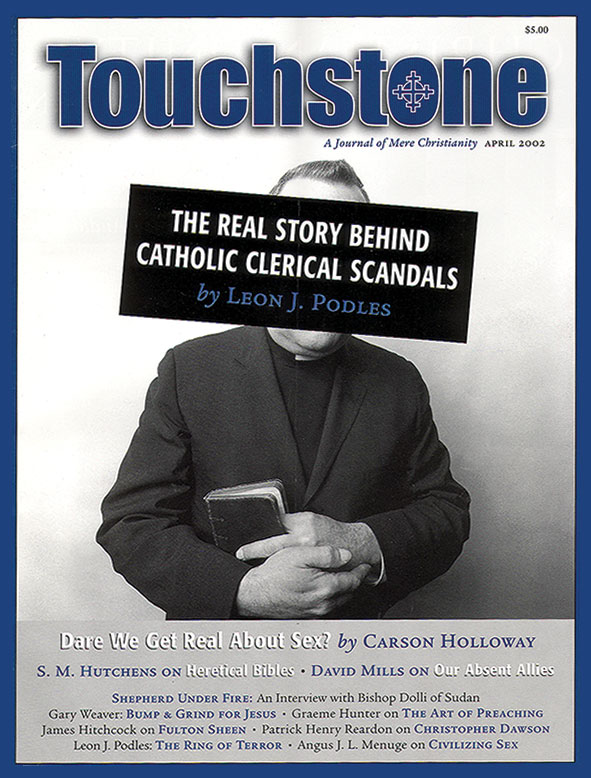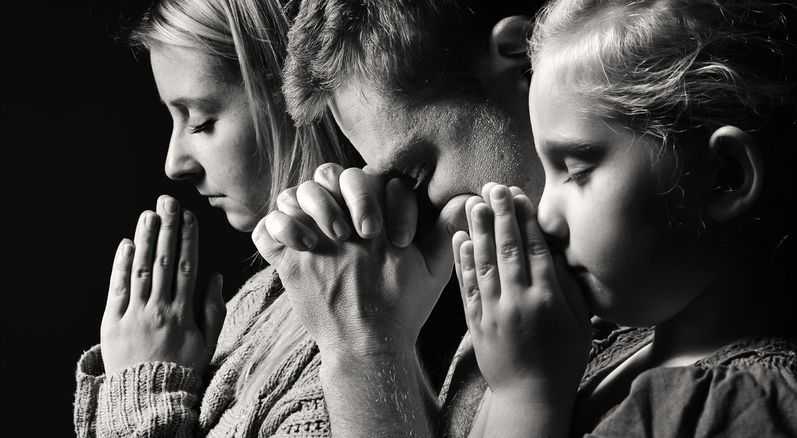That Elusive Peak Experience
Graeme Hunter on Disappointing Worship & The Art of Preaching
The secular society has much to offer, but it doesn’t satisfy everyone, or at least not all the time. That presumably has a lot to do with the interesting fact that so many of the New-York-Times-on-Sunday-morning or wash-the-car-on-Sunday-morning crowd go to church from time to time. Often they pick the Christmas or Easter season for a visit, but seldom are they intrigued enough to come back. If I were a clergyman, that double fact would interest me: the fact that they so often come and yet so seldom return.
But it doesn’t appear to interest all clergy. Some time ago Canada’s National Post quoted a United Church minister who seemed more exasperated than intrigued by such once-a-year Christians. “There’s such hype and such high expectations,” he said, that “people who don’t attend regularly come expecting a religious peak experience, and if it doesn’t happen, they’re really disappointed.”
Why People Return
The Edmonton congregation in which that minister serves is exceptionally fortunate if the peak experience only goes AWOL on high feastdays, and only for those who infrequently attend. Many of the most faithful supporters of other churches spend week after week in the pews grinding their teeth—year after year sometimes—without ever meeting the God they came to worship. Clergy usually say that they are trying to change that—and churches are always changing—yet the decline continues, as it has for over 40 years. More and more people stay away or come only occasionally to church; more and more of those who do attend consider leaving. Why is that?
The clergy love to think up gimmicks to get people back into church, but few of them reflect on why people voluntarily return, people like my friend George, for example. After his wife of several decades got the religion of feminism, she learned that husband and family were only patriarchal shackles and cut herself loose from them. George began to look around him for explanations more compelling than television talk shows could deliver. He also hoped to find a love more enduring than that of liberated women. One Sunday, a tender childhood memory brought him back to church.
Upon arriving he was bewildered at having to choose between “contemporary” or “traditional” worship. He was not delighted at the “diversity” of options, but disappointed at the institutional uncertainty it seemed to imply. As it turned out, however, the choice was illusory after all. Both shows had the same performers and much the same message, which amounted to this: “Hey, man, you’re okay.” George, however, had come back to church precisely because he was not okay. Neither guitars, nor overhead projectors, nor the easy-listening patter from the pulpit could convince him otherwise. He was not looking for “small group” involvement, for movie-nights, for activities, for fellowship—at least not at first.
He wanted exactly what the Edmonton pastor called a “peak experience” and was deeply disappointed when he didn’t find it, not even in the Sundays in the interval between Christmas and Easter. He never got it. Ultimately, he left the church again, more bitter and disoriented than when he came.
Not every random visitor at church is there for the same reasons as George, of course. And yet most of them leave again even more quickly. Clergy should be interested to know why. But this is a little difficult for them to discover. They themselves seldom quit, so most don’t know firsthand what bothers their congregations. And the quitters are no longer there for consultation. A minister’s best hope perhaps lies in hearing from someone who frequently has left different churches. I volunteer.
A Distinctive Experience
The United Church minister is right that ministers should not be expected to furnish a “peak experience” every week, since only God can decide whether he will be present or not. But it lies within the power of clergy to ensure that a visit to their church will be at the very least a distinctive experience. They can ensure that what goes on for one hour on Sunday morning is worship and not one of the currently fashionable alternatives. They can see that all things are done decently and in order.
Graeme Hunter is a contributing editor to Touchstone and Research Professor of Philosophy at Dominican University College in Ottawa. He is the author of Radical Protestantism in Spinoza's Thought (Ashgate).
subscription options
Order
Print/Online Subscription

Get six issues (one year) of Touchstone PLUS full online access including pdf downloads for only $39.95. That's only $3.34 per month!
Order
Online Only
Subscription

Get a one-year full-access subscription to the Touchstone online archives for only $19.95. That's only $1.66 per month!
bulk subscriptions
Order Touchstone subscriptions in bulk and save $10 per sub! Each subscription includes 6 issues of Touchstone plus full online access to touchstonemag.com—including archives, videos, and pdf downloads of recent issues for only $29.95 each! Great for churches or study groups.
Transactions will be processed on a secure server.
more from the online archives
calling all readers
Please Donate
"There are magazines worth reading but few worth saving . . . Touchstone is just such a magazine."
—Alice von Hildebrand
"Here we do not concede one square millimeter of territory to falsehood, folly, contemporary sentimentality, or fashion. We speak the truth, and let God be our judge. . . . Touchstone is the one committedly Christian conservative journal."
—Anthony Esolen, Touchstone senior editor









